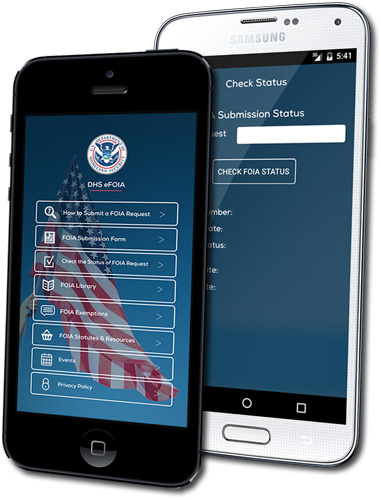Immigration News & Updates         eNewsletter
        eNewsletter
 POSTING DATE: September 4, 2017
Learn More About:
Immigration News & Updates eNewsletter ©  2011  - 2017Â
For questions about U.S. Residency, Green Cards and Immigration Visas, Visit our Website at: www.ImmigrateToday.com or  call our office at: (954) 382-5378
Check Out This Cool Stuff For Immigrants....
Immigration
Questions & Answers
This Week's Immigration NewsÂ
Question: My sister who is a U.S. Citizen filed to sponsor me in 2013. Me and my fiancé plan to get married soon, so Iâd like to know if that will effect my chances to immigrate and will it delay the processing of my case?
New Trump Policy Requires Residency Interview For Employment Cases
Answer:Â Under current Immigration regulations, brothers and sisters of U.S. Citizens are in a category called F4, which includes the sibling, his or her spouse and all minor children (under age 21). As a result, any spouse or child the foreign sibling acquired after the U.S. Citizens sibling files the immigration petition, will be automatically included and allowed to immigrate to the U.S.. Therefore, youâre coming marriage will not have any bad consequences on the Immigrant petition filed on your behalf by your U.S. Citizen sister. Once the immigration process is in the final stages, approximately 12-14 years after the case is filed, your U.S. Citizen sister can notify the National Visa Center that you have married and provide all the relevant information including Birth and Marriage Certificates. I hope this is helpful.
Immigration How To:Â
How Do I Get Free Information About Naturalization?
Under current political conditions, obtaining U.S. Citizenship through Naturalization is more important than ever. With changes to immigration rules and policies being made at a record pace, its best to start your Naturalization process sooner, rather than later. To help you prepare, USCIS has a variety of educational resources, including eligibility and testing, the application process, and study materials. You can also learn more about citizenship rights and responsibilities and find a free information session in your area. To get started, explore the links below.
In yet another poorly conceived decision to mis-allocate precious USCIS resources, Trump administration officials are now requiring all Employment (and asylee relative) Residency applicants to undergo Interviews at the local USCIS office.Â
 The new policy will take effect on October 1st and is purported to be part of Trumpâs travel ban executive order "Protecting the Nation From Foreign Terrorist Entry Into the United States," designed to combat fraud. Administration officials say the in-person interviews will allow its officers to verify the application, discover any new relevant information and assess the credibility of the applicant.
With the constant anti-immigrant drumbeat coming out of the Trump Whitehouse, coupled with increased deportations, threats against Immigrants and uncertainty about the fate of the DACA program, immigration advocates like United We Dream, Immigration Impact and the Immigrant Legal Resource Center advise Immigrants to make a safety plan for themselves and their families, in case the unexpected happens.Â
Here are their recommendations along with a few of my comments:Â
Get Prepared â Immigrant Families Should Have A "Trump" Safety PlanÂ
Helpful Immigration Tips You Can Use
File A Freedom of Information Act (FOIA)Â
Request Using Your Mobile Device
The Freedom of Information Act (FOIA) is a Federal law which in part allows individuals to obtain copies of documentation contained in government files, including those related to Immigration matters. The Department of Homeland Security (DHS) now provides the option of filing a request online, or through a free mobile application called âeFOIAâ, which allows users to submit and track Freedom of Information Act (FOIA) requests conveniently from an Android or Apple phone. You can download the free mobile application through Google Play and the App Store.
Visit the new eFOIA Website:
Download the new eFOIA mobile applications:
However, it is important to understand that not all documents are available under FOIA, including requests to obtain duplicate approval notices or original documents submitted to the USCIS. Typically, documents which can be obtained are copies of Immigration case filings, including supporting documents. This is particularly important when an immigrant has lost a copy of a vital document such as an I-94 which was previously submitted to the USCIS as part of an Immigration application.Â
Under current policy, Employment based cases are exempt from Residency interviews, since they are among the most lowest risk Immigrants. The consequences of this new policy will likely result in longer delays for already backlogged cases, a waste of everyoneâs time and money.
Do Not Open Your DoorsââImmigration and Customs Enforcement (ICE) cannot come into your home without a warrant signed by a judge. With your door shut, ask ICE to slide the signed warrant under the door or push it up against a window. They cannot come in unless you let them.
Exercise Your Right to Remain SilentâââICE can use anything you say against you in immigration court. Itâs important for you to remain silent and ask to speak to your attorney. Simply tell the immigration officer: âI am exercising my fifth amendment right and choosing to remain silent until I speak to my attorney.â
Do Not Sign Anything Before Speaking to an Attorneyâââ ICE and Customs Border Protection (CBP) may attempt to pressure or coerce you into signing your own deportation order. This is also known as a voluntary departure. Do not sign anything that they give you without first speaking to an attorney.
Record Your EncounterâââTake note of badge numbers, the number of agents, time, type of cars they used, and exactly what happened. Reporting this information will help advocates determine whether any rights violations occurred.
Report Your EncounterâââUnited We Dream runs a hotline for people to report activity of ICE, CBP, or any other enforcement agencies. Report the activity by calling the hotline at 1â844â363â1423.
Contact an Immigration LawyerâââGet a trustworthy immigration attorney or legal representative accredited by the Board of Immigration Appeals (BIA) and explore all options to fight your case. If detained, remember that you might be able to pay to be released on bondââdonât lose hope.Â
Protect Your AssetsââIf you bought a vehicle, home, or have a business, prepare a plan for how you will maintain them if you lose your job or are put into deportation proceedings.
Empower Others to Inquire About Your CaseââPrepare a Third Privacy Waiver Form with your attorney or BIA representative. This form allows a third party of your choice (congressional office, another person that is not a family member, a non-profit organization) to request any information about your detention, immigration or deportation case from an immigration enforcement agency like ICE, CBP, or U.S. Citizenship and Immigration Services.
Prepare Your Documents & Store In a Safe PlaceââMake a folder of documents that will prove your physical presence as far back as you can. Make a copy of the front and back of your important documents such as passports, work permits, social security cards, driversâ licenses, leasing contracts, G-28 form, Third Party Waiver, and keep the copies and originals in a safe place.
Talk to your Children and make plans for their care and safetyââIf you have children (under the age of 18), whether or not they are U.S. citizens, take the time to sit down with them and explain in a calm way what they should do in such circumstance, who they should contact and provide them with contact information. You might also want to have emergency guardianship papers in place. This will provide you with peace of mind knowing how your child will be cared for if you are detained or deported. Apply for, renew, and keep safe their valid passports.
Prepare a Phone TreeââIn case you or a loved one is detained, you need to have one person who can connect and activate all of your support systemâââfamily, teachers, mentors, and friends who will support you and your loved ones.
Download safety plans, tips and resources:
In light of the severe damage and displacement caused by Hurricane Harvey recently, the USCIS in Texas is making special accommodations to Immigrants in Texas on a case-by-case basis to assist those who were affected, including those who lost their Green Cards and other vital immigration documentation, who were not able to attend biometrics and other appointments scheduled at local USCIS offices due to the storm, who were not able to respond to USCIS requests for evidence or file extensions or request for change of status prior to deadlines, emergency requests for work and travel permits.Â
Texas USCIS Announces Special Services To Victims of Hurricane Harvey
Immigrants affected should make an Infopass appointment at their local USCIS and be able to explain exactly how they were personally negatively impacted by Hurricane Harvey. Read the USCIS Notice
Learn about the reasons to consider U.S. citizenship.
Understand the process of becoming a U.S. citizen.
Identify the steps needed to apply for citizenship.
Prepare for the naturalization interview and test.
Find an English and/or citizenship class, legal assistance, and USCIS-funded programs in your area.
Find a free naturalization information session in your area.
Use your zip code to find a citizenship program.
Learn about citizenship rights and responsibilities.
Naturalization Resources in Spanish (Recursos para la naturalización)
Find a list of USCIS resources in Spanish about the naturalization process.
Question: Hello, its about my son came to America when he was 5 years old and has been here growing up and attending school ever since. He turned 15 yesterday and I want you to file for his DACA status, but Iâve been reading that the president is going to cancel the program and now we are so confused about what to do, can you please confirm this for me? Thank you.
Answer:Â Thatâs a great question. Under the current DACA program which began in 2012, children who have entered the U.S. before age 16, on or by June 15, 2007, and who are at least 15 years old are eligible to apply under the Deferred Action For Childhood Arrivals program for DACA status and a work permit. Trump must determine whether he will continue or cancel the program in early September. However, in case he cancels the program, those who have current DACA status and those who have applied for DACA before the cancellation will likely be able to continue. Therefore those like your son should apply immediately, in hopes that the DACA application is accepted before Trump makes his determination in the next few weeks. We can file his application the same day you come in.Â














